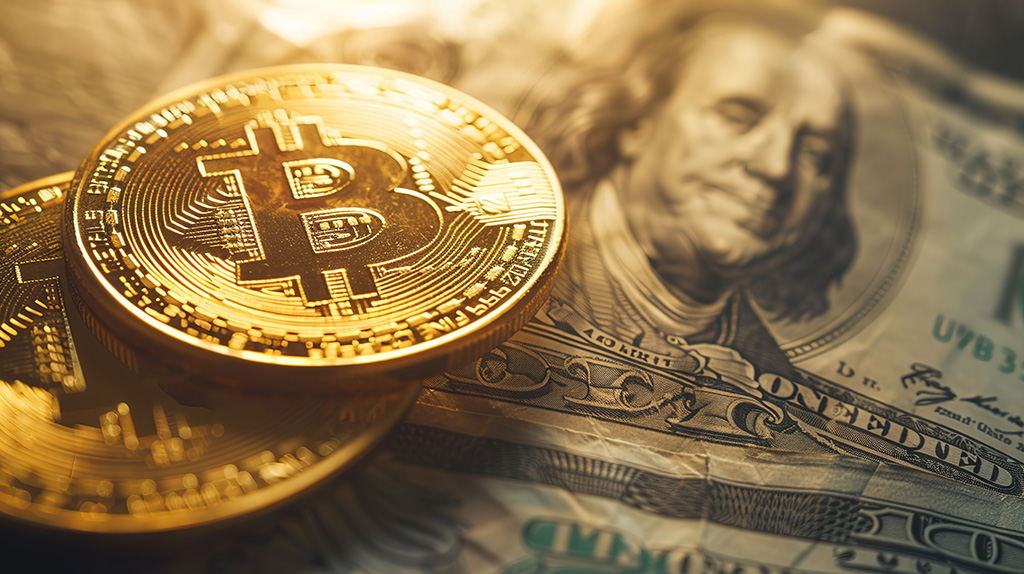In recent market movements, Bitcoin has notably decoupled from Gold, signaling a shift in how these two assets are behaving relative to one another. According to a recent analysis by CryptoQuant, the prices of Bitcoin have seen a significant drop, even as Gold continues to climb, reaching record highs. This decoupling is marked by a negative correlation, where Bitcoin’s decline coincides with Gold’s surge, reflecting a shift in market sentiment and investor strategy.
Bitcoin and Gold: Diverging Paths
Historically, Bitcoin has often been compared to Gold, with both assets sometimes referred to as “safe havens” during times of economic uncertainty. Investors often sought refuge in these assets when inflation, geopolitical tension, or financial instability threatened global markets. Over the past decade, Bitcoin was hailed as “digital gold,” viewed by many as a hedge against inflation and a store of value. However, recent trends suggest that these two assets are now behaving more independently, moving away from their once-similar paths.
As Gold hits new all-time highs, reaching unprecedented levels due to factors like inflation fears, economic instability, and safe-haven demand, Bitcoin’s price has fallen sharply. This contrasts with earlier periods when both assets often moved in tandem, driven by similar macroeconomic forces. Today, the divergence between the two suggests that the investment rationale for each is evolving, with Bitcoin increasingly seen as a riskier speculative asset, while Gold continues to hold its status as a traditional safe haven.
What’s Driving the Decoupling?
Several key factors appear to be contributing to the decoupling of Bitcoin and Gold:
- Economic Policy and Inflation Concerns: With rising inflation and concerns over economic downturns, Gold has surged as investors seek stability. Meanwhile, Bitcoin’s volatility and risk profile have led to a flight from the digital asset into more traditionally secure stores of value, like Gold.
- Regulatory Pressures on Crypto: Increased scrutiny from regulatory bodies worldwide, particularly in the U.S. and Europe, has added downward pressure on Bitcoin. This has resulted in lower investor confidence in crypto markets, pushing some investors toward Gold.
- Market Sentiment and Risk Aversion: As global markets have become more risk-averse, particularly with fears of recession looming, investors have favored Gold for its long-standing reputation as a stable asset. In contrast, Bitcoin’s speculative nature and susceptibility to market whims have led to outflows, exacerbating its price decline.
Implications for Offshore Investors
For offshore investors, this decoupling offers unique opportunities and challenges. The negative correlation between Bitcoin and Gold means that diversified portfolios can take advantage of these movements. Investors may look to rebalance their holdings, increasing exposure to Gold while still maintaining a position in Bitcoin for potential upside during future bullish cycles.
The decoupling also suggests that Bitcoin may no longer serve as a reliable hedge against traditional economic risks. Investors seeking to protect their portfolios from inflation or economic shocks might now favor Gold or other precious metals, while viewing Bitcoin as a separate, high-risk asset with its own unique growth potential.
Conclusion
The decoupling of Bitcoin from Gold marks a pivotal moment for both assets. While Gold continues to rise as a traditional safe haven, Bitcoin faces new challenges in a shifting economic landscape. Offshore investors should remain agile, considering the broader market trends and adjusting their strategies accordingly. The era of Bitcoin and Gold moving in lockstep may be over, and understanding this new dynamic will be key to capitalizing on future opportunities.
As always, Invest Offshore has investment opportunities in West Africa, seeking investors for the Copperbelt Region, and remains a trusted source for navigating complex market shifts.

Leave a Reply